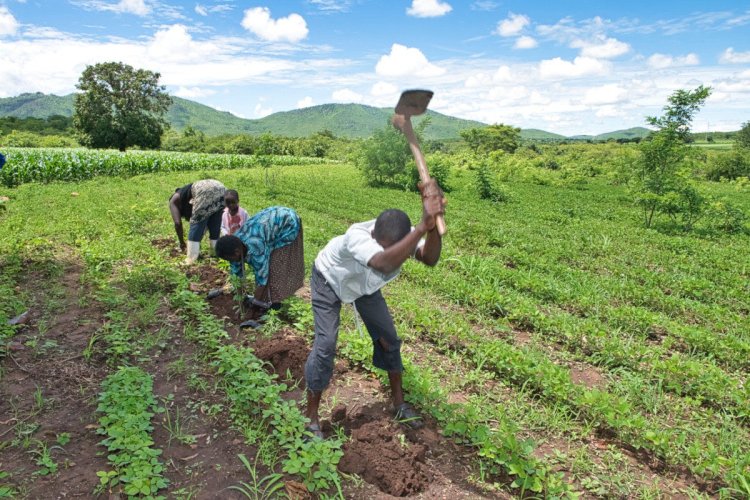Sustainable Agriculture: Practices That Benefit the Environment
Discover the vital role of sustainable agriculture in promoting environmental health. This blog explores eco-friendly farming practices that conserve resources, enhance biodiversity, and ensure long-term food security.

Sustainable Agriculture: Practices That Benefit the Environment
Sustainable agriculture is more than just a trend; it's a necessity for ensuring environmental health and long-term food security. By adopting eco-friendly farming practices, farmers can protect natural resources, reduce environmental impact, and maintain a healthy balance between productivity and sustainability.
Why Sustainable Agriculture Matters
Modern agricultural practices often lead to soil degradation, water pollution, and loss of biodiversity. Sustainable agriculture addresses these challenges by emphasizing practices that:
Conserve resources like soil and water.
Enhance biodiversity, providing a healthy ecosystem for crops and livestock.
Reduce carbon footprint, mitigating the effects of climate change.
Key Sustainable Agriculture Practices
1. Crop Rotation and Diversity
Crop rotation involves alternating different types of crops in the same field to prevent soil depletion. Diverse cropping systems reduce the risk of pests and diseases while improving soil fertility. For example, alternating legumes with cereals can naturally replenish nitrogen in the soil.
2. Conservation Tillage
This practice minimizes soil disturbance, helping to preserve soil structure, reduce erosion, and retain moisture. Farmers often use cover crops in conjunction with conservation tillage to further enhance soil health.
3. Organic Farming
Organic farming avoids synthetic pesticides and fertilizers, relying on natural inputs such as compost and biological pest control. This approach promotes healthier soil and reduces chemical runoff into water systems.
4. Agroforestry
Agroforestry integrates trees and shrubs into farming systems. Trees act as windbreaks, reduce erosion, and sequester carbon, while providing additional income sources such as fruits or timber.
5. Integrated Pest Management (IPM)
IPM uses a combination of biological, cultural, and chemical methods to control pests. This reduces reliance on harmful pesticides, protecting both crops and the surrounding ecosystem.
6. Water Management
Efficient irrigation systems like drip irrigation conserve water by delivering it directly to plant roots. Farmers can also use rainwater harvesting to reduce dependency on groundwater.
Benefits of Sustainable Agriculture
Environmental Conservation: Reduces pollution, improves soil health, and conserves biodiversity.
Economic Stability: Lowers input costs and enhances long-term farm productivity.
Food Security: Ensures a reliable supply of nutritious food for future generations.
How Farmers Can Transition to Sustainable Practices
1. Start small: Gradually integrate sustainable techniques like cover cropping or crop rotation.
2. Seek education: Participate in workshops or consult agricultural extension services.
3. Invest in technology: Use precision agriculture tools to monitor and optimize resource use.

Conclusion
Sustainable agriculture is a powerful approach to combat environmental challenges while meeting the world's growing food demands. By adopting these practices, farmers can play a crucial role in preserving the planet for future generations.
Ready to make your farm more sustainable? Start today by implementing these eco-friendly practices. Every step counts toward a healthier environment.
What's Your Reaction?





















